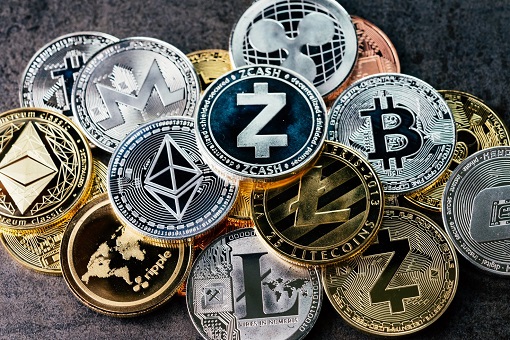If you were asked to name two financial markets that should command your attention in the digital age, cryptocurrency and the foreign exchange would probably come at the top of your list.
After all, the forex market sees an estimated $6.6 trillion traded globally every single day, while the cryptocurrency space in the UK boasted a total market capitalisation of £237.1 billion by the end of 2019.
In this post, we’ll appraise the role that volatility plays in influencing these two markets, while asking what separates them and how traders can profit over time?
What Factors Trigger Volatility in These Markets?
When it comes to the forex market, there are several macroeconomic factors that drive volatility and price movements on a daily basis.
These include a country’s base interest rate and level of inflation, which are often manipulated by monetary policies and the type of stimulus packages rolled out in the wake of socio-economic crises.
In the wake of the coronavirus pandemic, for example, several countries have slashed the base interest rate as a way of controlling inflation and stimulating longer-term economic growth.
As a result of this, national currencies become devalued within a relatively short period of time, as capital inflows decline and the prevailing levels of foreign investment fall substantially.
In the case of cryptocurrencies and tokens (such as Bitcoin), various assets remain particularly vulnerable to bad news events that are directly related to the marketplace.
More specifically, stories or developments that scare cryptocurrency users have a direct and adverse impact on adoption rates, particularly in the case of geopolitical events and in instances where governments announce that tokens are set to be regulated in the near-term.
This trend was particularly prevalent during Bitcoin’s formative years, when events such as the bankruptcy of Mt. Gox in early 2014 and the prominent use of this token to fund illicit purchases on the Silk Road drove sentiment downwards and caused prices to crash as a result.

Differences Between These Markets and Top Tips for Traders
Interestingly, Bitcoin and similar tokens are less vulnerable to the macroeconomic factors that impact on currencies, primarily because they’re not controlled by the government (or a central authority) and therefore won’t be affected by monetary policy.
Not only this, but crypto tokens are also finite in their nature, as they are only a fixed amount of coins that can be accessed by traders.
This creates strong similarities between Bitcoin and gold, which have become increasingly evident in 2020 as both assets have mirrored one another and served as viable safe havens during the coronavirus pandemic.
Certainly, this means that even forex traders are more likely to flock to crypto tokens during times of economic tumult, and this has helped Bitcoin to reach record price levels in 2020.
In terms of capitalising on the similarities and differences associated with these assets, timing in one the key considerations as an investor.
For an example, forex traders have a unique opportunity to profit by hedging against certain pairings even as the market depreciates, while targeting assets during peak trading volumes (such as during crossovers between alternative trading sessions) can also lead to more substantial short-term gains.
Conversely, assets such as Bitcoin offer increased value during times of austerity, while tokens certainly offer high-value and secure stores of wealth in the modern age.
If Bitcoin remains outside of your budget, however, we’d recommend investing in high-growth altcoins (like Ethereum), which are far more affordable and also poised to experience sustained growth in the coming months.

|
|
January 22nd, 2021 by financetwitter
|


|

|

|

|

|

|




























Comments
Add your comment now.
Leave a Reply